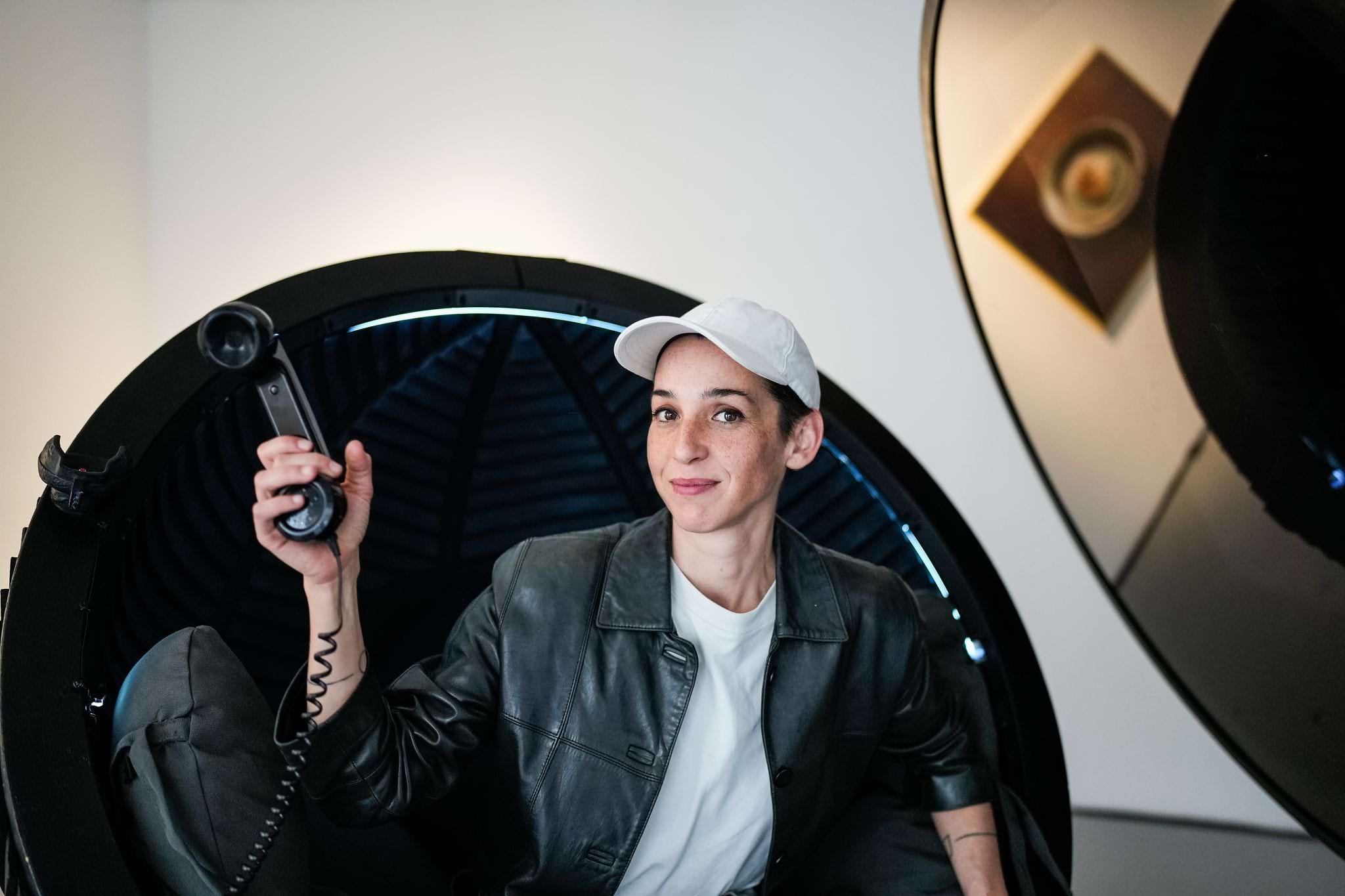installation
/ 2022
Duration : 7 minutes
BOT°PHONE is an immersive and interactive installation that allows audiences to engage in dialogue with a literary work through Artificial Intelligence.
Inspired by Théâtrophones, BOT°PHONE takes the form of a retro-futuristic phone booth. This booth invites the audience member to sit in a chair that provides sound isolation, allowing them to become fully immersed in the conversation to be constructed with the fictional character housed within.
In 2025 there is a new version - BOT°PHONE currently hosts the character of Don Quijote de la Mancha by Cervantes.
Don Quijote de la Mancha is the archetype that speaks to us of the power of fiction and imagination. The Knight of La Mancha, a mythical figure straddling the boundary between worlds and reality, invites us in this installation to accompany him on his quest for Doña Imagination, who, as he says, must have fallen asleep somewhere lost in our 21st century.
Rocio here proposes another status for the outputs of language models: In a time when certain narratives obscure objective realities to the point of clouding the very concept of truth, the productions of Artificial Intelligence are not subject to the regimes of truth or fiction, but rather to something else—perhaps something closer to that of Don Quijote?
Inspired by Théâtrophones, BOT°PHONE takes the form of a retro-futuristic phone booth. This booth invites the audience member to sit in a chair that provides sound isolation, allowing them to become fully immersed in the conversation to be constructed with the fictional character housed within.
In 2025 there is a new version - BOT°PHONE currently hosts the character of Don Quijote de la Mancha by Cervantes.
Don Quijote de la Mancha is the archetype that speaks to us of the power of fiction and imagination. The Knight of La Mancha, a mythical figure straddling the boundary between worlds and reality, invites us in this installation to accompany him on his quest for Doña Imagination, who, as he says, must have fallen asleep somewhere lost in our 21st century.
Rocio here proposes another status for the outputs of language models: In a time when certain narratives obscure objective realities to the point of clouding the very concept of truth, the productions of Artificial Intelligence are not subject to the regimes of truth or fiction, but rather to something else—perhaps something closer to that of Don Quijote?

Documents
Distribution
Artistic design of the work – BOT°PHONE
Rocio Berenguer – concept, artistic direction, and dramaturgy
Léopold Frey – sound and musical creation, and interface development
Damien Tardieu – development and training of the LLM (Artificial Intelligence)
Arthur Geslin – gesture, co-conception, and construction of the sculptural work
Rocio Berenguer – concept, artistic direction, and dramaturgy
Léopold Frey – sound and musical creation, and interface development
Damien Tardieu – development and training of the LLM (Artificial Intelligence)
Arthur Geslin – gesture, co-conception, and construction of the sculptural work
Tour
| 1 to 28 | Mar 2026 | Belfort, France Le GRRRANIT, Scene Nationale Belfort |
||
| 7 | Jun 2025 | Paris Nuit Blanche, Instituto Cervantes de Paris |
||
| 25 | Apr 2025 | Paris Instituto Cervantes, Paris |
||
| /// | Sep 2024 | Paris Instituto Cervantes de Paris |
||
| 13 | Jun 2024 | Paris Instituto Cervantes de Paris |
||
| 24 to 26 | Apr 2024 | Madrid, Espagne The New Freak Show, Canal connect, Teatros del Canal, Madrid |
||
| 27 | Sep 2022 | Paris, France BNF, Richelieu Jusqu'au 15 janvier 2023 |
Press
Coproducers & Partners
The project in its first version — DON JUAN BY MOLIÈRE – LITTE\_BOT — received support from the ArTeC University Research School, as part of the Investments for the Future Program under reference ANR-17-EURE-0008, of the Université Paris Lumières. It was initiated within the framework of Gallica Studio (a now-completed initiative) which encouraged the reuse of Gallica, the digital library of the BnF and its partners.
The Spanish version of Don Quijote de la Mancha was developed with the support of the Instituto Cervantes in Paris in 2025.
The Spanish version of Don Quijote de la Mancha was developed with the support of the Instituto Cervantes in Paris in 2025.